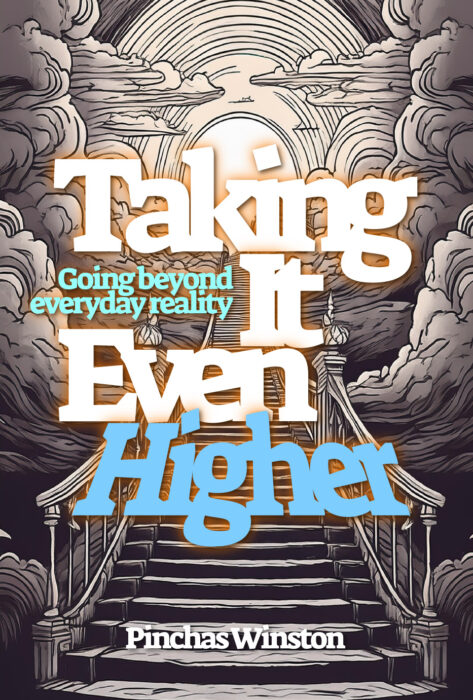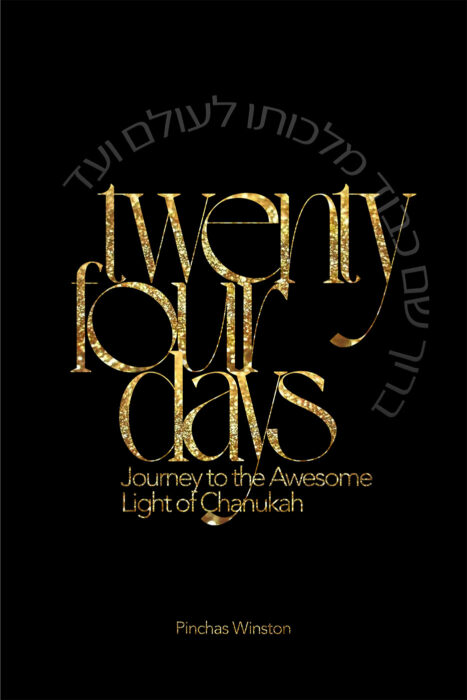Parashas Emor, Issue #2096 - By Rabbi Pinchas Winston
This Thursday is Lag B’Omer, b”H. It is the day we are told on which Rebi Shimon bar Yochai died, but not before revealing the Zohar to his most trusted students. The Zohar, which means “brilliance,” is one of the main kabbalistic works to this day. While some have questioned the Zohar’s authenticity and accuracy, most kabbalists today do not, especially post-Arizal.
To celebrate this immeasurable gift and remember the tzaddik who bequeathed it to us, we light bonfires and, of course, make barbecues. Well, actually, the barbecues are a late edition and really have little to do with the theme of the day. But where there is a fire, there is often an Israeli making a barbecue, unless of course it is one that was started either by enemy arsonists or careless campers. We’ve had a few of those over the last couple of years.
But the Zohar says that when Rebi Shimon revealed and unraveled the kabbalistic secrets of the Zohar to his talmidim, fire burned all around them. It didn’t destroy anything, but it helped to convey how holy the knowledge is, which is compared to fire.
The Zohar has multiple parts. The main part of the Zohar, which is learned by many, is on the weekly Torah portion, kind of a kabbalistic midrash. The more technical and extremely profound sections of the Zohar that deal with the most sublime knowledge known to mankind are the Idra Rabba, Idra Zuta, and Sifra D’Tzniusa. Raya Mehemna and Midrash Ne’elam are usually embedded within the parsha even though they may stray far from it.
I’ve written about Kabbalah many times already, and in several books, b”H. The truth is, my own appreciation of Sod widens and is enhanced with every passing day as I become increasingly more exposed to its unfathomable wisdom. I love Physics and I am awed by how much it knows and theorizes, but it deals with the limited physical world. Kabbalah deals with the unlimited spiritual world, and it would be humanly impossible to theorize about what it teaches.
What is also amazing is how seforim like the two Idros and Sifra D’Tzniusa talk on levels that seemingly have nothing to do with everyday life. They absolutely do. They just don’t make the connection for you, either because they are not interested in that connection, or because they expect you to be able to make it on your own.
You find something similar in Physics. Theoretical Physics rarely tells you how their discoveries can be technologically applied. The technocrats figure that out, which is why they tend to make all the money from the application, and not the scientists who made the discovery.
Likewise, a lot of kabbalists lived in poverty except for some charlatans over the years. It’s not that they could not become wealthy because of their kabbalistic knowledge. On the contrary, they even knew Kabbalas Ma’asios—Practical Kabbalah—that allowed them to do miracles at will. The Gemora says that when Rebi Chanina’s wife complained about their poverty, he used Kabbalah to end it (in the end, she asked her husband to reverse the miracle).
It’s not that they loved being poor per se. It was more that they didn’t care much for this world, and only involved themselves in it as much as Divine Providence made them. They lived on a different spiritual plane altogether and barely noticed the world around them. They were too busy walking with God, which is why, the Leshem explains, God let them do miracles at will.
Because there is Kabbalah, and then there is Kabbalah. The Zohar and the Arizal and all of Kabbalah can easily be turned into a college course, and has been. You can ever get a doctorate in the topic. That might look good on stationery and impress family and friends. But if the Kabbalah you learned does not make you into a more Godly person, then you haven’t really learned it.
As I have mentioned in the past, the hiding of the Ohr HaGanuz, the supernal light that God hid on the first day of Creation, meant that it could only flow henceforth to the spiritually worthy. As the Gemora says, wisdom without fear of God is like having a key to the inner chamber but not the outer one that surrounds it. A lot of good that does a person.
The assumption is that knowledge is just knowledge. If you can understand what it says, it is enough. If it is impactful, it will impact you. If it doesn’t impact you, then it is not impactful. It doesn’t occur to spiritually lacking people that the knowledge can be impactful, but they are not worthy of being impacted.
How does this work? This week’s parsha helps to explain this. The Torah makes a distinction between kohanim without a blemish and those who have one. Why should that make a difference? It seems unfair that someone born with a physical handicap should be denied the opportunity to serve in the Temple.
But everything is Divine Providence, and if someone is born with a blemish, it is God’s doing. And if God, who made the rules of Temple service, says that such a person cannot serve, it is because they are not the proper vessel for the Temple service, or at least the parts they can’t officiate.
Why? Only God knows. It might have to do with a past life. It might be for some kind of tikun process we can’t see yet. But it is all for the good, and learning Kabbalah makes it easier to understand why when the world we can
Thirtysix.org
Rabbi Pinchas Winston
Shabbat Shalom



















